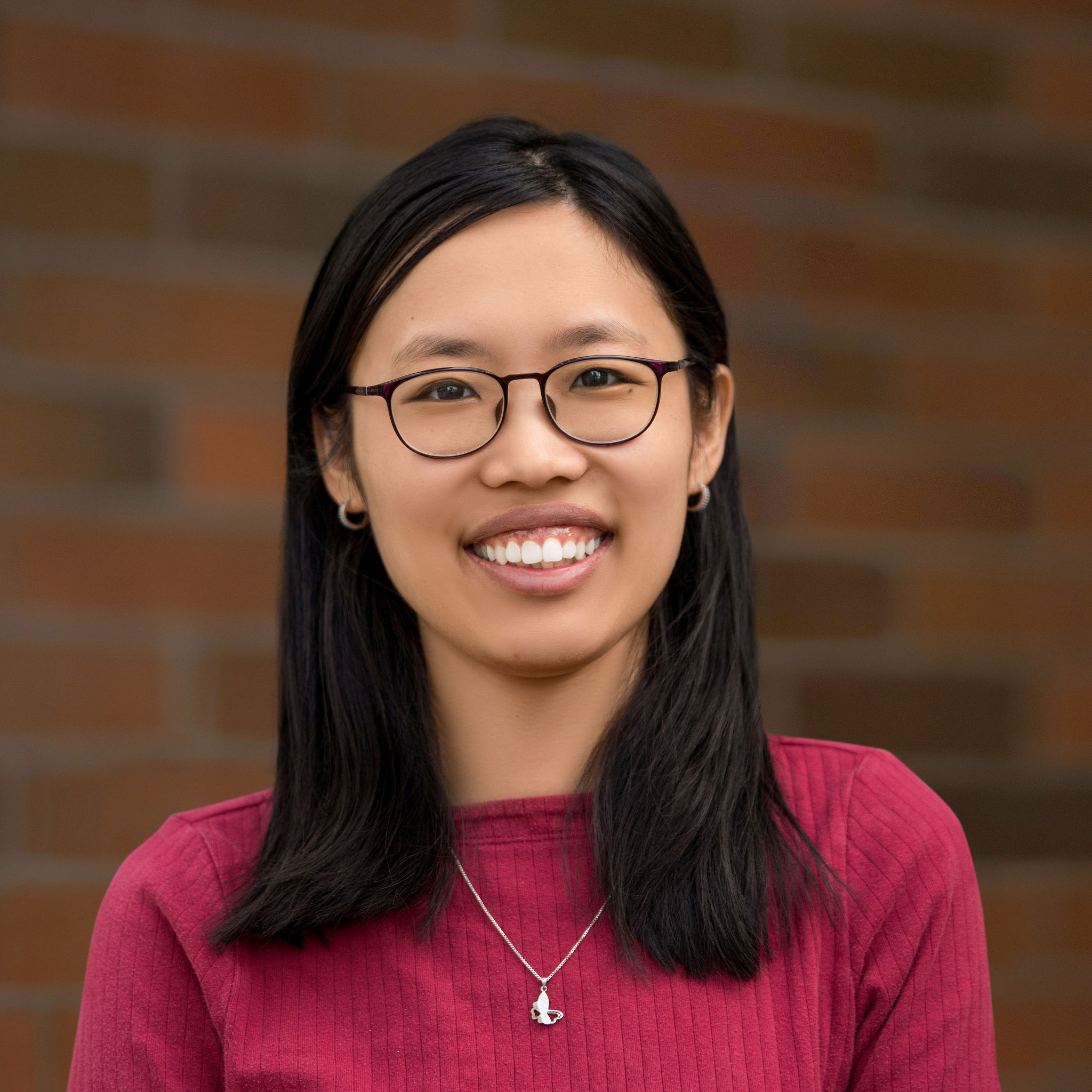One Concern co-founder and Chief Technical Officer (CTO) Nicole Hu M.S. ’15 spoke for the MS&E472: Entrepreneurial Thought Leaders seminar on April 24. Hu began One Concern during her time at Stanford with co-founders Ahmad Wani M.S. ’15 and Timothy Frank Ph.D. ’16, and what started as a class project for CS229: Machine Learning grew into a company tackling the issue of worldwide natural disaster prevention with artificial intelligence.
Hu and her team built the foundations of One Concern out of interest with the problem itself, not with a goal of starting a company. In 2014, Ahmad went home to his home in Kashmir, which had suffered from disastrous floods that summer. Inspired to prevent, and better respond to floods like those in Kashmir, the team tackled natural disaster mitigation with AI-enabled technology for their CS229 class project. Hu cites Stanford as adding value to the project, even indirectly, through professors who shared inspiring stories of what other students had accomplished after graduation, and because the classes were flexible enough for creativity and personalization.
Two distinct moments gave Hu the confidence to push One Concern from school project to full-fledged company. The first was a meeting with the city governors of San Francisco and Woodside, California. When receiving feedback on their technology, they were met with enthusiasm and feedback that the product would be immediately impactful and useful. The second moment was a conversation amongst the co-founders about the seriousness of their commitment.
“It is important to have those conversations with co-founders because there will be a lot more downs than ups,” Hu reflected. Those two moments cemented in Hu’s mind that they were ready to pursue One Concern — she had a real problem to work on and a team she could trust.
With a strong mission in mind, One Concern began with rapid iteration to ensure product-market fit. As the company matured, it “shifted from constantly iterating from a single city’s feedback to being more planned,” Hu said, adding that quick response and development of features to an identified problem was valuable early on, but their increased methodicalness today ensures the usefulness of their developed technology.
One Concern works with a variety of information, from data about building infrastructure to details about the soil, trees and landscape of an environment — “everything affects final impact.”
“You may have the strongest home, but a large tree right next to you … and that would affect the result,” Hu explained.
While cities have progressed in collecting city information, often gaps in data need to be filled with machine learning and statistical models. Currently, One Concern works with both cities with heavy investment in data infrastructures as well as with developing cities who may need a dataset created from scratch.
As CTO, Hu describes her role as “providing goals and methods for problem-solving,” as well as “bridging the internal and external team’s ideas.” Sometimes there is an integration on the business side that is not yet realized in the product, and Hu helps create a roadmap for that.
Hu also oversees operations, ensuring that the team is mentored effectively and the mission is followed. Having come from a very technical background, Hu recalls her realization about how development and impact are tightly knit. While working at e-commerce company Flipkart and “sleeping overnight at the office just to make sure things were deployed on time,” she made a mistake in her code.
“Someone came and told me that because of that particular flaw it affected X number of customers [they] could have had,” Hu recalled, adding that “whatever you do in a startup goes back and translates back into company metrics.”
Today, she builds off this understanding of impact: “Now all I do is think about company metrics, not lines of code.”
Thinking back to her time at Stanford, she noted that she “focused more on the technical part” because “the classes we had were pretty great.” While academics at Stanford are valuable and rewarding, in hindsight, Hu wished she built up her interpersonal skills through more business, finance and public speaking classes.
“For a mission-driven company, company culture is pretty important,” Hu said. “You sometimes sacrifice technical ability over culture, and it always works itself out. Even if the product is really good the team might not be able to function.”
One Concern’s mission is to “make civilians a top priority. There is currently no sustainable way to tackle the issue of disaster response and planning,” Hu said. Because there are no clear cut metrics, and navigating chaos can involve anything from how fire trucks should navigate to how governments should budget, Hu is always talking to a diverse set of people. At One Concern you may find fire ecologists, data scientists and public servants — Hu said they all help weigh into a complex issue.
To ensure team fit, Hu does all the hires with her technical team, claiming that “once you are able to get the right team, all these other problems surrounding prioritization — ‘Do I build the right product?’, ‘Am I selling the right thing?’ — work themselves out because you have key players helping to solve those issues. I wouldn’t say I have all the answers; my team has all the answers.”
Contact Chloe Barreau at cbarreau88 ‘at stanford.edu.
